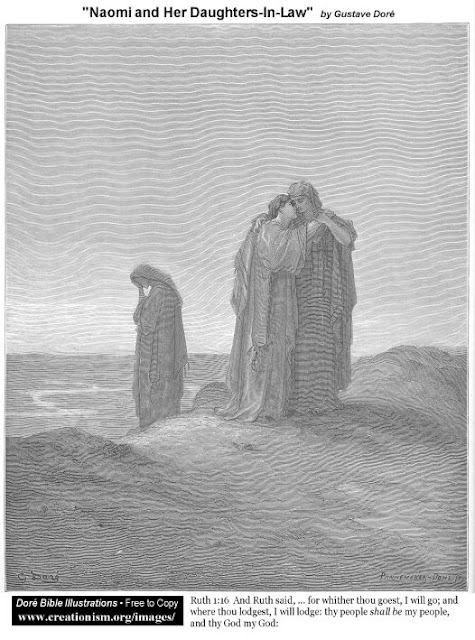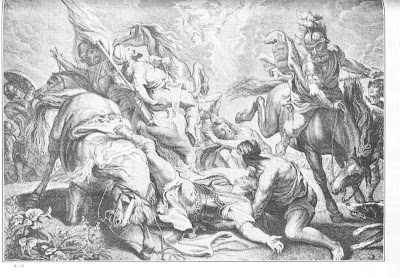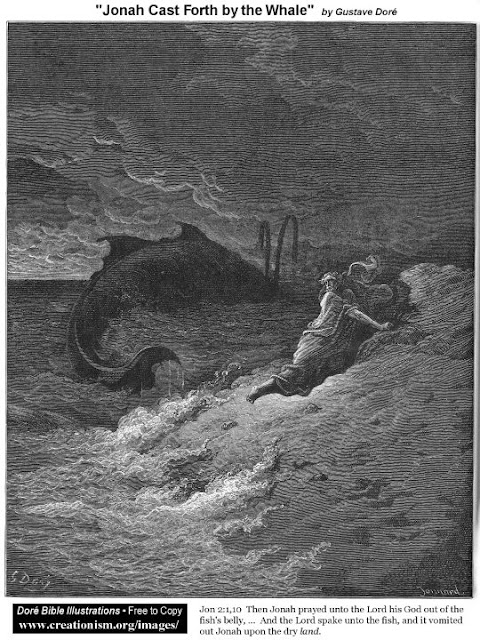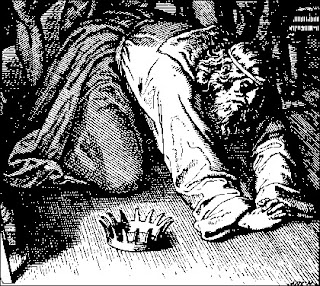 |
| Servant hiding his talent - Artist unknown |
TO CHEW ON: " ' For to everyone who has, more will be given and he will have abundance; but from him who does not have, even what he has will be taken away.' " Matthew 25:29
After a career which included many stages (hospital clerk, medical records clerk, school teacher, visiting homemaker, medical transcriptionist, stay-at-home mom) it was this parable that spoke to me about pursuing my lifelong interest in writing.
Note how the word for the unit of money used in the NKJV ("talent") is the same word we use to describe "a particular and uncommon aptitude for some special work or ability; a faculty or gift" (Funk and Wagnalls Dictionary). Thus the connection between stewarding what we have—money and abilities—is impossible to miss.
Some things that jump out at me from this story:
1. Both of the servants who invested their talents received the same commendation even though their returns were different (Matthew 25:21,23).
2. The master's commendation doesn't lead to a holiday but to more responsibility: "… you have been faithful over a few things. I will make you ruler over many things" - (Matthew 25:21,23).
3. This work of faithful stewardship is the doorway to joy: "Enter into the joy of your lord" are the master's final words to them (Matthew 25:21,23).
4. The servant who received one talent seems to have had an underlying critical attitude. He justified his non-action by suggesting that the master was cruel and unpredictable (Matthew 25:24).
5. He also confessed to fear—so great it paralyzed him and he hid the talent away so he could return it, uninvested, to the master (Matthew 25:25).
We can apply things from this story to our lives.
Like the master in the parable gave different amounts of money to different servants, God gives us different talents, abilities, and resources. Let's not become jealous and bitter because we have only one talent while the person beside us has five, or boastful because it's the other way around. Paul addresses this issue with the Corinthians when he says:
"For who makes you differ from another? And what do you have that you did not receive? Now if you did indeed receive it, why do you boast as if you had not received it?" - 1 Corinthians 4:7.
God doesn't expect a five-talent return from a two-talent person. Let's steward the money and abilities we do have and not denigrate our increase by comparing it to someone else's.
Let's conquer fear. We can always find reasons—multiple reasons—why our talent investment efforts will fail. But these fear-whispers are not from God. When He puts a talent in our hands and gives us the investment idea, we can go forward with the assurance that:
"I can do all things through Christ who gives me strength" - Philippians 4:13.
When our faithfulness leads to more and larger responsibilities, let's not shrink back into retirement or laziness but embrace the new load with the knowledge that using our gifts to serve the master is the doorway to joy. It is the key to receiving what I believe will be the biggest pay check we could ever get—God's "Well done, good and faithful servant."
PRAYER: Dear God, thank You that in Your wisdom You give us differing abilities and opportunities. Help me today to steward well what You have entrusted to me. Amen.
PSALM TO PRAY: Psalm 93
*********
Unless otherwise noted all Scripture quotations are taken from the New King James Version®. Copyright © 1982 by Thomas Nelson, Inc. Used by permission. All rights reserved.









